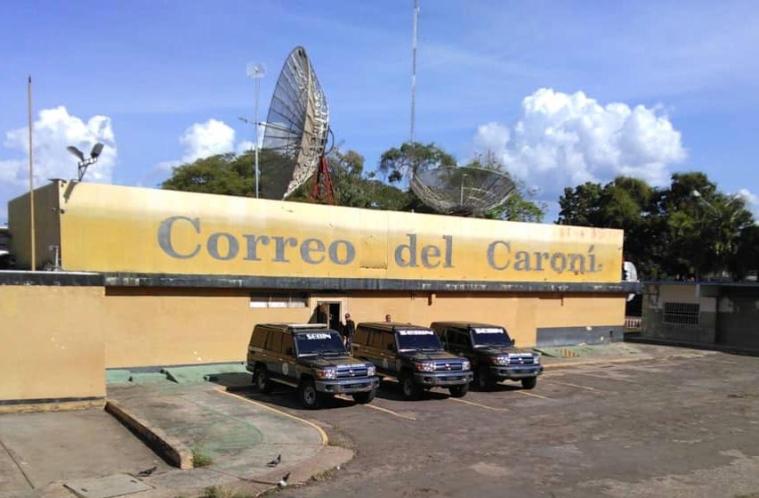Miami, October 22, 2020 — Venezuelan authorities must stop harassing and threatening the Correo del Caroní newspaper, its owner, and its employees, and allow them to work freely, the Committee to Protect Journalists said today.
On October 20, at about 9 a.m., agents from the Bolivarian Intelligence Service raided the headquarters of Correo del Caroní, an independent newspaper in the southern city of Puerto Ordaz, confiscated an editorial computer and documents, and barred the paper’s lawyer from the scene, according to media reports and a report by Correo del Caroní.
The agents left at about 3 p.m., and took journalist María Ramírez Cabello and administrative employee Susana Reyes into custody, according to the paper’s report and Correo del Caroní editor Oscar Murillo, who spoke with CPJ via messaging app.
Murillo said the agents held the two employees at the intelligence service’s regional headquarters and interrogated them for about six hours without access to a lawyer, and then released them without charge at about 9:40 p.m. He said the agents returned the confiscated documents but not the computer.
Previously, on October 12, intelligence agents raided the home of Correo del Caroní founder and director David Natera Febres, according to news reports.
“Venezuelan authorities must stop harassing Correo del Caroní, its owner David Natera Febres, and its employees, and allow them to work without interference or intimidation,” said CPJ Central and South America Program Coordinator Natalie Southwick, in New York. “It is astounding that the Maduro government chooses to devote resources to fight the independent press, instead of bringing everything it has to bear on the economic, social, and health crises that continue to decimate Venezuela.”
Both raids were conducted under an order from Judge Carol Padilla from the Special Court of First Instance, which has jurisdiction over terrorism-related crimes, according to a report by the paper and Murillo, who reviewed a copy of the court order during the October 20 raid. Murillo said the order did not specify any alleged crimes committed by the newspaper or its employees.
After the October 12 raid on Natera Febres’ home, intelligence agents detained him, interrogated him for over four hours without a lawyer present, and then released him without charge, according to news reports.
In the interrogations of the outlet’s owner and of its employees, Bolivarian Intelligence Service agents asked questions about the operations and management of Correo del Caroní, and the outlet’s alleged relationship with Natera Febres’ son, David Natera Bilancieri, Murillo said.
Natera Bilancieri was recently appointed as a member of the National Council of Judicial Defense, a body established to support an interim government that would be led by opposition leader Juan Guaidó, according to press reports.
In 2015, CPJ documented how restrictions on Correo del Caroní’s newsprint limited the paper’s ability to operate. In 2016, a judge sentenced Natera Febres to four years in prison for criminal defamation, fined him, and barred him from leaving the country in relation to the newspaper’s investigation of alleged corruption at a state-run mining company, as CPJ documented.
CPJ called Venezuela’s office of the vice presidency, which supervises the intelligence service, but no one answered the call.
